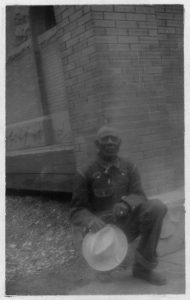


Raboteau is a first-rate historian, and his book swims in primary source material. Starting with the question of "how much of the original African religious beliefs and practices survived the middle passage, and in what form," the book moves on to the ways that Christianity was preached to, received by, subverted and appropriated to address the situation of enslaved African peoples. The book itself is a classic, an absolute "must read" on the topic of Black Christianity (though the book does explore other religious traditions as well - the bulk of its focus is on Christianity). It's excellent, and I recommend the updated edition if only for that reason - great historiographical reflections there. I read the 2004 updated edition, which contains an excellent "Afterward" by Raboteau reflecting on the time of his original study, and the decades of work that have transpired since then. This book originated out of Raboteau's PhD dissertation at Yale, and was originally published in 1978.

There is little doubt that it will become the standard work on the religion of Black slaves in the U.S." When it first came out, James Cone said this: "Slave Religion is the best volume on the subject, and no seminary or university library should be without it. The suffering witness of slave Christians constitutes a major spiritual legacy not only for their descendants but also for any who would take the time to heed the testimony of their words and of their lives."

Even as the American church is still coming to terms with our history and reckoning with racism, we have to ask - How much further might we have fallen were it not for the faithful perseverance of Christian slaves?Īlbert Raboteau says in his afterword, "Despite severe persecution and suffering, slave Christians bore witness to the Christian gospel, whose truth they perceived and maintained in contradiction to the debasement of that very gospel by those who held power over their bodies and their external actions, but not their souls. The legacy of Christian slaves is a story about heroes of the Christian faith - saints who endured unspeakable suffering to preserve the purity of the Gospel. It might even be more accurate to say that Christian slaves WERE the true Church which stood in opposition to the false church that so severely marred the Gospel by its complicit participation in slavery. In the context of widespread (if not near universal) hypocrisy of the white church and its participation in slavery, the faithfulness of Christian slaves seems to be the only redeeming aspect of American Christianity in the era of slavery. Widely considered a classic in the field of American slave history, this book should also be considered a classic in our understanding of American religious history.


 0 kommentar(er)
0 kommentar(er)
